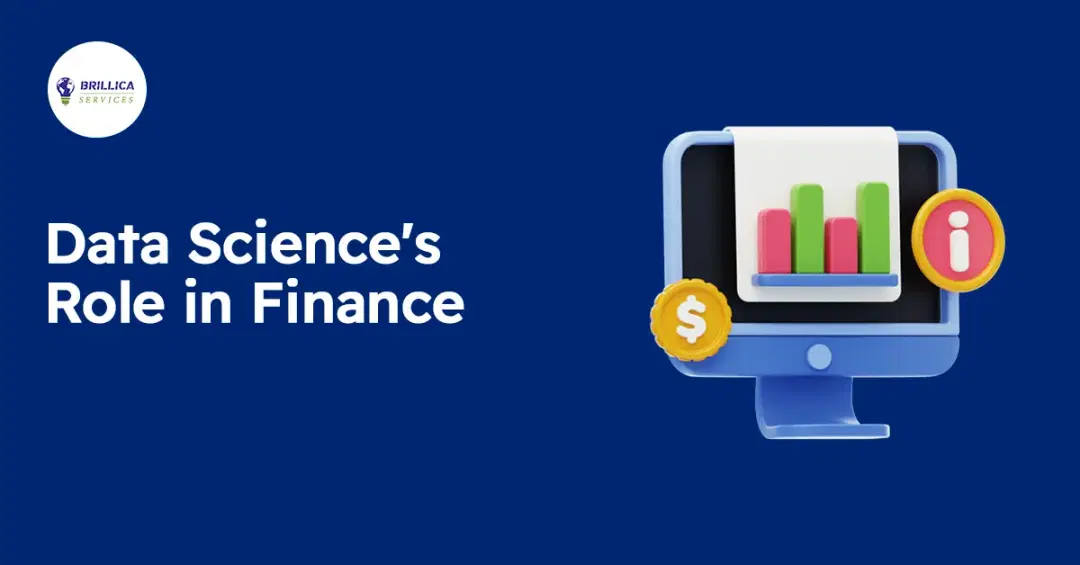Is Cyber Security a Good Career?
In today’s fast-paced, technology-driven world, the importance of safeguarding sensitive data cannot be overstated. With cyber threats and data breaches becoming more sophisticated, businesses and individuals alike are placing a premium on cyber security. This has propelled cyber security to the forefront of technology careers, making it one of the most sought-after fields. But is cyber security a good career? Let’s explore this dynamic field and its potential to shape the future of technology.
Why Cyber Security is Important
The swift digital transformation across industries has fostered an interconnected ecosystem where enormous volumes of data are exchanged every day. While this advancement has significantly enhanced convenience, it has also unveiled critical vulnerabilities. The importance of cybersecurity stems from several key factors:
- Protecting Sensitive Data: Cybersecurity protects sensitive data such as personal information, financial details, intellectual property, and confidential business records from unauthorized access and breaches.
- Maintaining Trust: Businesses that prioritize cybersecurity build trust with their customers, partners, and stakeholders by ensuring their data remains secure.
- Preventing Financial Loss: Cyberattacks, such as ransomware or phishing, can result in massive financial losses. Strong cybersecurity measures mitigate these risks and save organizations from potential bankruptcy.
- Safeguarding Reputation: A data breach can damage an organization’s reputation irreparably. Effective cybersecurity helps maintain a positive image.
- Compliance with Regulations: Adherence to data protection regulations such as GDPR, HIPAA, or India’s IT Act ensures legal compliance and avoids penalties.
- National Security: In the era of cyber warfare, cybersecurity is crucial to protecting critical infrastructure, defense systems, and national interests from state-sponsored attacks.
- Enabling Business Continuity: Cybersecurity ensures uninterrupted business operations by preventing disruptions caused by cyber threats.
Does Cyber Security Require Coding?
One common question for aspiring professionals is whether coding is a necessary skill for a career in cybersecurity. The answer largely depends on the role you’re targeting. Here is a deeper look:
- Entry-Level Roles: Most entry-level positions, such as security operations center (SOC) analysts, focus on monitoring and reporting threats. These roles do not always require advanced coding skills but benefit from familiarity with basic scripting.
- Ethical Hacking and Penetration Testing: Coding is essential for these roles. Knowledge of programming languages like Python, C, C++, and Ruby is vital for simulating attacks, writing exploits, and analyzing vulnerabilities.
- Incident Response: Coding can assist in automating tasks, creating scripts to analyze logs, or extracting data during forensic investigations.
- Security Engineers and Architects: Professionals designing and implementing security infrastructure need coding skills to develop secure software, configure tools, and integrate security features.
- Management and Policy Roles: Positions like cybersecurity managers or compliance officers rarely require coding but demand an understanding of technical processes.
While not every role demands extensive coding expertise, gaining proficiency in languages like Python, JavaScript, Bash, and SQL can significantly enhance your career prospects.
What Cyber Security Problems Are You Solving?
Cybersecurity professionals tackle a wide array of challenges that threaten individuals and organizations. Here are some key problems they address:
- Data Breaches: Preventing unauthorized access to databases and sensitive files to protect personal and corporate information.
- Phishing Attacks: Detecting and mitigating attempts to steal sensitive information through fraudulent emails or websites.
- Ransomware: Protecting systems from malware that encrypts data and demands ransom for its release.
- Distributed Denial-of-Service (DDoS) Attacks: Ensuring system availability by countering attacks designed to overwhelm networks.
- Insider Threats: Monitoring and addressing risks posed by employees or contractors who intentionally or accidentally compromise security.
- Cloud Security: Protecting data stored and managed in cloud environments by preventing unauthorized access and safeguarding against data breaches.
- IoT Vulnerabilities: Protecting connected devices, such as smart home systems and industrial IoT setups, from exploitation.
- Identity Theft: Implementing measures to prevent unauthorized use of personal identities.
- Zero-Day Exploits: Identifying and mitigating vulnerabilities that attackers exploit before they are discovered by software vendors.
- Cyber Espionage: Detecting and preventing state-sponsored attacks aimed at stealing intellectual property or sensitive government data.
Cyber Security Analyst Jobs
A cybersecurity analyst is essential in safeguarding an organization's digital assets. Their responsibilities include:
- Monitoring Systems: Continuously overseeing networks and systems for unusual activities or potential threats.
- Identifying Vulnerabilities: Conducting routine assessments to locate and rectify security weaknesses.
- Incident Response: Investigating and resolving security breaches quickly to minimize damage.
- Developing Security Protocols: Designing and implementing security measures tailored to an organization’s specific needs.
- Training Employees: Educating staff on best practices to minimize human errors leading to cyberattacks.
- Analyzing Threats: Staying updated on emerging threats and applying this knowledge to enhance organizational security.

To excel as a cybersecurity analyst, individuals must possess strong analytical skills, attention to detail, and proficiency with tools like SIEM software, vulnerability scanners, and endpoint detection systems.
Cyber Security Salary in India
Cybersecurity is a career that offers both intellectual fulfillment and financial rewards. Here’s an expanded breakdown of cybersecurity salaries in India:
- Entry-Level Roles: Freshers can expect salaries ranging from ₹3,00,000 to ₹5,00,000 annually.
- Mid-Level Professionals: With 3-5 years of experience, salaries typically range from ₹7,00,000 to ₹12,00,000.
- Senior Roles: Professionals with over a decade of experience can earn upwards of ₹20,00,000 annually.
Specialized Roles:
- Ethical Hackers: ₹8,00,000 to ₹18,00,000.
- Penetration Testers: ₹7,00,000 to ₹15,00,000.
- Cybersecurity Architects: ₹15,00,000 to ₹25,00,000.
Additional Roles:
- SOC Analyst: ₹4,00,000 to ₹6,00,000.
- Threat Intelligence Analyst: ₹8,00,000 to ₹12,00,000.
- Incident Response Specialist: ₹10,00,000 to ₹16,00,000.
Certifications like CISSP, CEH, CISM, and skills in emerging tools can significantly enhance earning potential.
Tools for Cyber Security
Cybersecurity professionals rely on various tools to protect systems, data, and networks effectively. Here’s a comprehensive list of tools:
- Firewalls: Palo Alto Networks, Fortinet.
- Antivirus Software: Norton, McAfee.
- Network Scanners: Nmap, Wireshark.
- Vulnerability Scanners: Nessus, OpenVAS.
- Penetration Testing: Metasploit, Burp Suite.
- SIEM Tools: Splunk, IBM QRadar.
- Encryption Tools: VeraCrypt, OpenSSL.
- Endpoint Security: CrowdStrike, Symantec Endpoint Protection.
- Password Managers: LastPass, Dashlane.
- Threat Intelligence Platforms: Recorded Future, ThreatConnect.
- Cloud Security Solutions: AWS Security Hub, Microsoft Azure Security Center.
- Incident Response Tools: Carbon Black, Resilient.
- Forensic Tools: EnCase, FTK (Forensic Toolkit).
- Web Application Security: OWASP ZAP, Acunetix.
- DDoS Protection: Cloudflare, Akamai.
- Intrusion Detection Systems: Snort, Suricata.
- Log Analysis: Graylog, LogRhythm.
- Data Loss Prevention (DLP): Digital Guardian, Symantec DLP.
- Malware Analysis: Cuckoo Sandbox, IDA Pro.
- IoT Security: Armis, ZingBox.
How to Learn Cyber Security
Embarking on a cybersecurity career requires a combination of education, hands-on practice, and certifications. Here’s how you can start:
- Formal Education: Pursue a degree in computer science, information technology, or a related field.
- Online Courses: Platforms like Coursera, Udemy, and Brillica Services offer courses tailored to various aspects of cybersecurity.
- Certifications: Industry-recognized certifications like CompTIA Security+, CISSP, CEH, CISM, and OSCP validate your expertise.
- Practical Experience: Participate in cybersecurity bootcamps, internships, and hackathons to gain real-world exposure.
- Build a Home Lab: Set up a virtual environment to practice tools, techniques, and simulations.
- Networking: Join cybersecurity communities, forums, and LinkedIn groups to connect with professionals and stay informed about trends.
- Stay Updated: Follow cybersecurity blogs, podcasts, and news to stay abreast of the latest threats and solutions.
Top Cyber Security Companies in India
India is home to several renowned cybersecurity firms that offer robust solutions and employment opportunities. Here are 20 of the top companies:
- Tata Consultancy Services (TCS)
- Wipro
- Infosys
- HCL Technologies
- Tech Mahindra
- Quick Heal Technologies
- Paladion
- Secureworks
- Cybage
- KPMG India
- EY India
- PricewaterhouseCoopers (PwC)
- Cognizant
- Dell
- Trend Micro India
- Sophos India
- McAfee India
- Check Point Software
- Forcepoint
- FireEye
These companies are at the forefront of delivering cutting-edge security solutions and provide excellent career opportunities for aspiring professionals.
Conclusion
Cybersecurity is more than just a career; it’s a cornerstone of the digital future. As technology becomes increasingly intertwined with every aspect of modern life, the need to protect digital assets, systems, and data will continue to grow. This makes cybersecurity one of the most crucial and impactful professions of our time.
The significance of cybersecurity lies in its ability to shield individuals and organizations from a multitude of threats. Cybersecurity professionals serve as guardians of the digital realm, safeguarding personal identities, protecting corporate data, ensuring national security, and fostering trust in a digital-first world. Without these experts, the digital ecosystem would be vulnerable to constant disruptions and financial losses, undermining the progress achieved through technology.
Anyone who is considering a career in cybersecurity, the opportunities are vast and varied. From ethical hacking to threat analysis, from incident response to cloud security, the field offers roles for all levels of expertise and interests. What sets cybersecurity apart is its adaptability—whether you’re a technical expert or a strategic thinker, there’s a place for you in this ever-expanding domain. While certain roles require coding, many others rely on analytical skills, problem-solving, and a strong understanding of security tools and frameworks.
The financial rewards of a career in cybersecurity are also noteworthy. With competitive salaries, high demand, and opportunities for growth, professionals in this field enjoy job security and recognition. India, in particular, is emerging as a global hub for cybersecurity talent, with leading companies investing heavily in building secure systems and offering attractive packages to skilled professionals.
The tools and technologies available to cybersecurity professionals today are vast and ever-evolving. From firewalls and vulnerability scanners to advanced SIEM systems and forensic analysis tools, these resources enable experts to stay ahead of attackers and safeguard critical infrastructure. Learning to use these tools effectively, along with gaining industry-recognized certifications, can set aspiring professionals on the path to success.
The journey to a successful cybersecurity career begins with education, hands-on practice, and a commitment to lifelong learning. With numerous online courses, certifications, and communities dedicated to cybersecurity, there’s never been a better time to enter the field. Networking with industry professionals, staying updated on the latest trends, and participating in internships or hackathons are essential steps to building expertise and confidence.
Moreover, the growing prominence of Indian cybersecurity firms highlights the country’s role in the global security landscape. Companies like TCS, Wipro, Infosys, and Quick Heal Technologies are driving innovation and setting benchmarks in cybersecurity practices. Joining one of these top organizations not only provides exposure to cutting-edge technologies but also positions professionals at the forefront of global cybersecurity efforts.
Finally we can say, it's importance will only increase as new technologies emerge and cyber threats evolve. For individuals with a passion for technology, problem-solving, and making a tangible impact on the world, a career in cybersecurity offers unparalleled opportunities. By acquiring the right skills, certifications, and experience, you can be part of a profession that not only promises personal and financial rewards but also plays a vital role in shaping a secure digital future.










